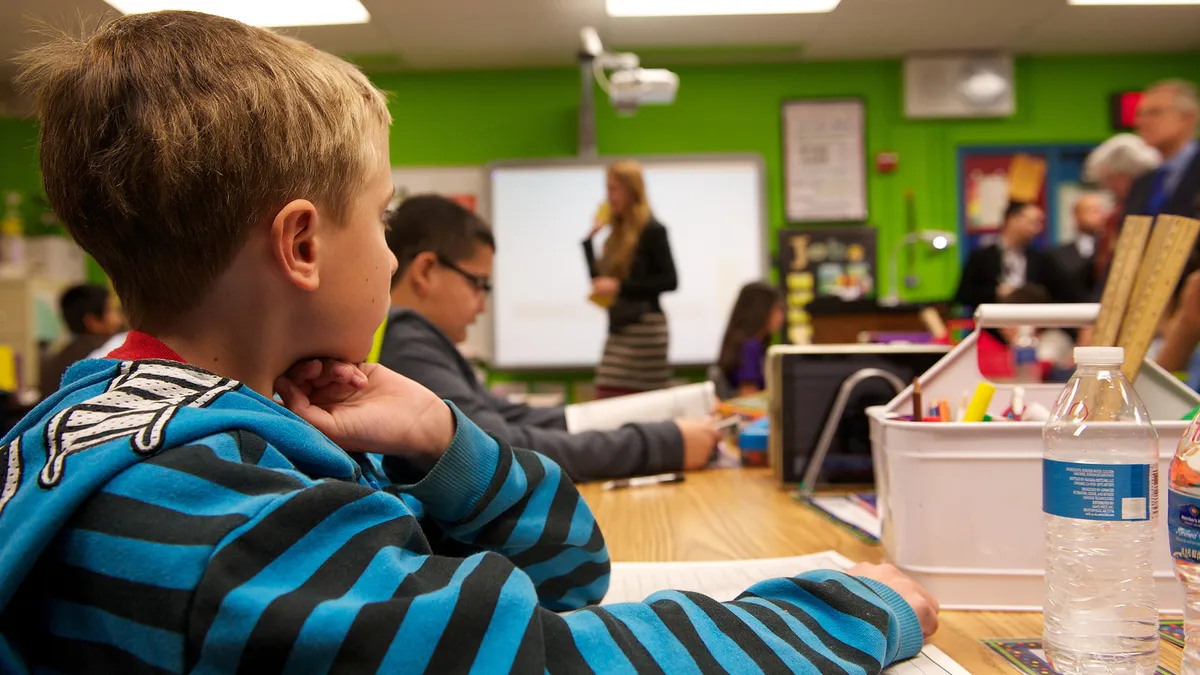Dive Brief:
- A study of 20,000 students in 13 states released last week by the National Center for Education Evaluation and Regional Assistance found that RTI (Response to Intervention) learning might actually be detrimental to students it was designed to help.
- In a test group of first graders, those who didn’t receive any RTI actually outperformed those who did on reading exams.
- The model may now be failing due to being over-generalized and watered down, giving it “more of a general education approach” than an actual intervention.
Dive Insight:
“Response to Intervention (RTI) is a multi-tier educational approach aimed at early identification and support of students whose learning needs are not being met,” the Northwest Evaluation Association’s website states.
Though RTI is supposed to prevent struggling students from falling behind or being transferred to special ed programs, it seems to have largely failed. The study’s results proved surprising to many. Schools have largely applied RTI in grades 1-3, mostly in reading. Yet the study found that there’s apparently a lack of a “bright line” between regular core teaching and intervention.
Karen K. Wixson, a reading and literacy professor, told Education Week that she believes RTI’s failure also stems from “problems both in the screening tools used to identify students for Tier 2 interventions and in the array of interventions available for them.” According to Education Week, school leaders are encouraged to re-examine how they identify students for RTI, and to take another look at the interventions they provide.






 Dive Awards
Dive Awards







